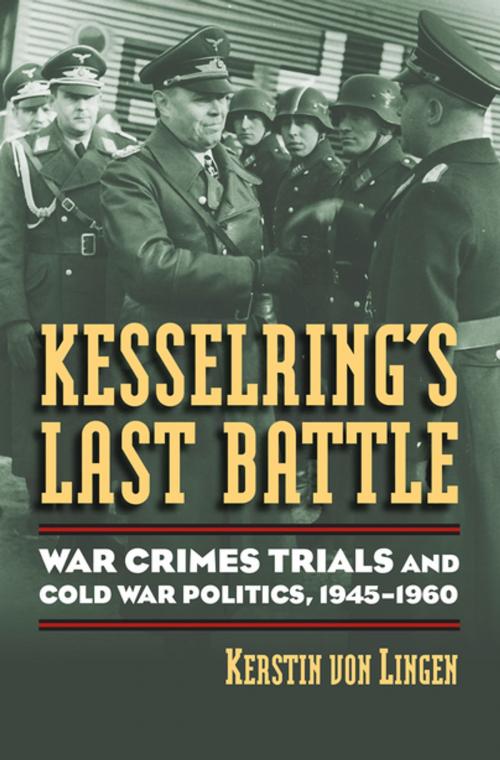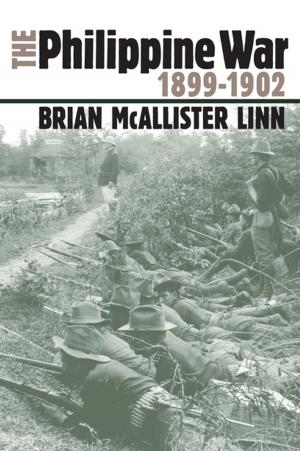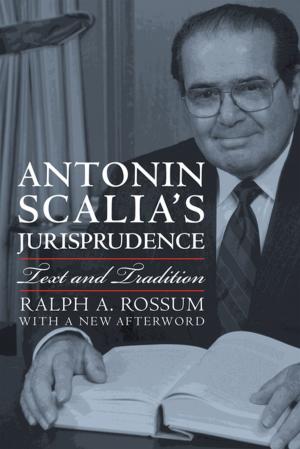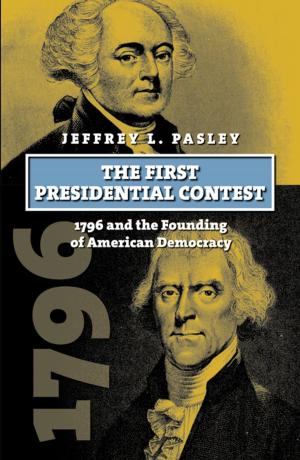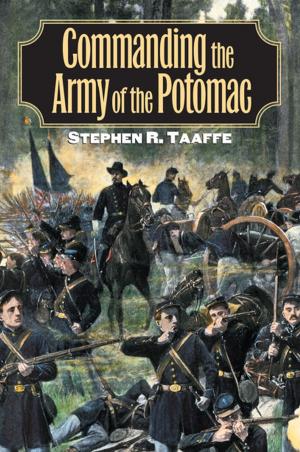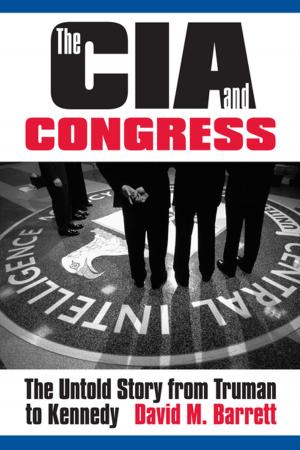Kesselring's Last Battle
War Crimes Trials and Cold War Politics, 1945-1960
Nonfiction, History, Jewish, Holocaust, Germany, Military, World War II| Author: | Kerstin von Lingen | ISBN: | 9780700627349 |
| Publisher: | University Press of Kansas | Publication: | May 11, 2018 |
| Imprint: | University Press of Kansas | Language: | English |
| Author: | Kerstin von Lingen |
| ISBN: | 9780700627349 |
| Publisher: | University Press of Kansas |
| Publication: | May 11, 2018 |
| Imprint: | University Press of Kansas |
| Language: | English |
In 1947 German Field Marshal Albert Kesselring was tried and convicted of war crimes committed during World War II. He was held responsible for his troops having executed nearly 9,000 Italian citizens—women, children, elderly men—in retaliation for partisan attacks. His conviction, however, created a real dilemma for the United States and western Europe. While some sought the harshest punishments available for anyone who had participated in the war crimes of the Nazi regime, others believed that the repatriation of alleged war criminals would help secure the allegiance of a rearmed West Germany in the dangerous new Cold War against the Soviet Union.
Kerstin von Lingen's close analysis of the Kesselring case reveals for the first time how a network of veterans, lawyers, and German sympathizers in Britain and America achieved the commutation of Kesselring's death sentence and his eventual release—reinforcing German popular conceptions that he had been innocent all along and that the Wehrmacht had fought a "clean war" in Italy. Synthesizing the work of contemporary German and Italian historians with her own exhaustive archival research, she shows that Kesselring bore much greater guilt for civilian deaths than had been proven in court—and that the war on the southern front had been far from clean.
Von Lingen weaves together strands of the story as diverse as Winston Churchill's ability to mobilize support among British elites, Basil Liddell Hart's need to be recognized as an important military thinker, and the Cold War fears of the "Senators' Circle" in the United States. Through this rich narrative, she shows how international politics shaped the trial's proceedings and outcome—as well as the memory and meaning of the war for German citizens—and sheds new light on the complex interplay between the combatants' efforts to "master the past" and the threatening state of international relations in the early Cold War.
In analyzing the efforts to clear Kesselring's name, von Lingen shows that the case was about much more than the fate of one convicted individual; it also underscored the pressure to wrap up the war crimes issue—and German guilt—in order to get on with the business of bringing a rearmed Germany into the Western alliance. Kesselring's Last Battle sheds new light on the "politics of memory" by unraveling a twisted thread in postwar history as it shows how historical truth is sometimes sacrificed on the altar of expediency.
In 1947 German Field Marshal Albert Kesselring was tried and convicted of war crimes committed during World War II. He was held responsible for his troops having executed nearly 9,000 Italian citizens—women, children, elderly men—in retaliation for partisan attacks. His conviction, however, created a real dilemma for the United States and western Europe. While some sought the harshest punishments available for anyone who had participated in the war crimes of the Nazi regime, others believed that the repatriation of alleged war criminals would help secure the allegiance of a rearmed West Germany in the dangerous new Cold War against the Soviet Union.
Kerstin von Lingen's close analysis of the Kesselring case reveals for the first time how a network of veterans, lawyers, and German sympathizers in Britain and America achieved the commutation of Kesselring's death sentence and his eventual release—reinforcing German popular conceptions that he had been innocent all along and that the Wehrmacht had fought a "clean war" in Italy. Synthesizing the work of contemporary German and Italian historians with her own exhaustive archival research, she shows that Kesselring bore much greater guilt for civilian deaths than had been proven in court—and that the war on the southern front had been far from clean.
Von Lingen weaves together strands of the story as diverse as Winston Churchill's ability to mobilize support among British elites, Basil Liddell Hart's need to be recognized as an important military thinker, and the Cold War fears of the "Senators' Circle" in the United States. Through this rich narrative, she shows how international politics shaped the trial's proceedings and outcome—as well as the memory and meaning of the war for German citizens—and sheds new light on the complex interplay between the combatants' efforts to "master the past" and the threatening state of international relations in the early Cold War.
In analyzing the efforts to clear Kesselring's name, von Lingen shows that the case was about much more than the fate of one convicted individual; it also underscored the pressure to wrap up the war crimes issue—and German guilt—in order to get on with the business of bringing a rearmed Germany into the Western alliance. Kesselring's Last Battle sheds new light on the "politics of memory" by unraveling a twisted thread in postwar history as it shows how historical truth is sometimes sacrificed on the altar of expediency.
